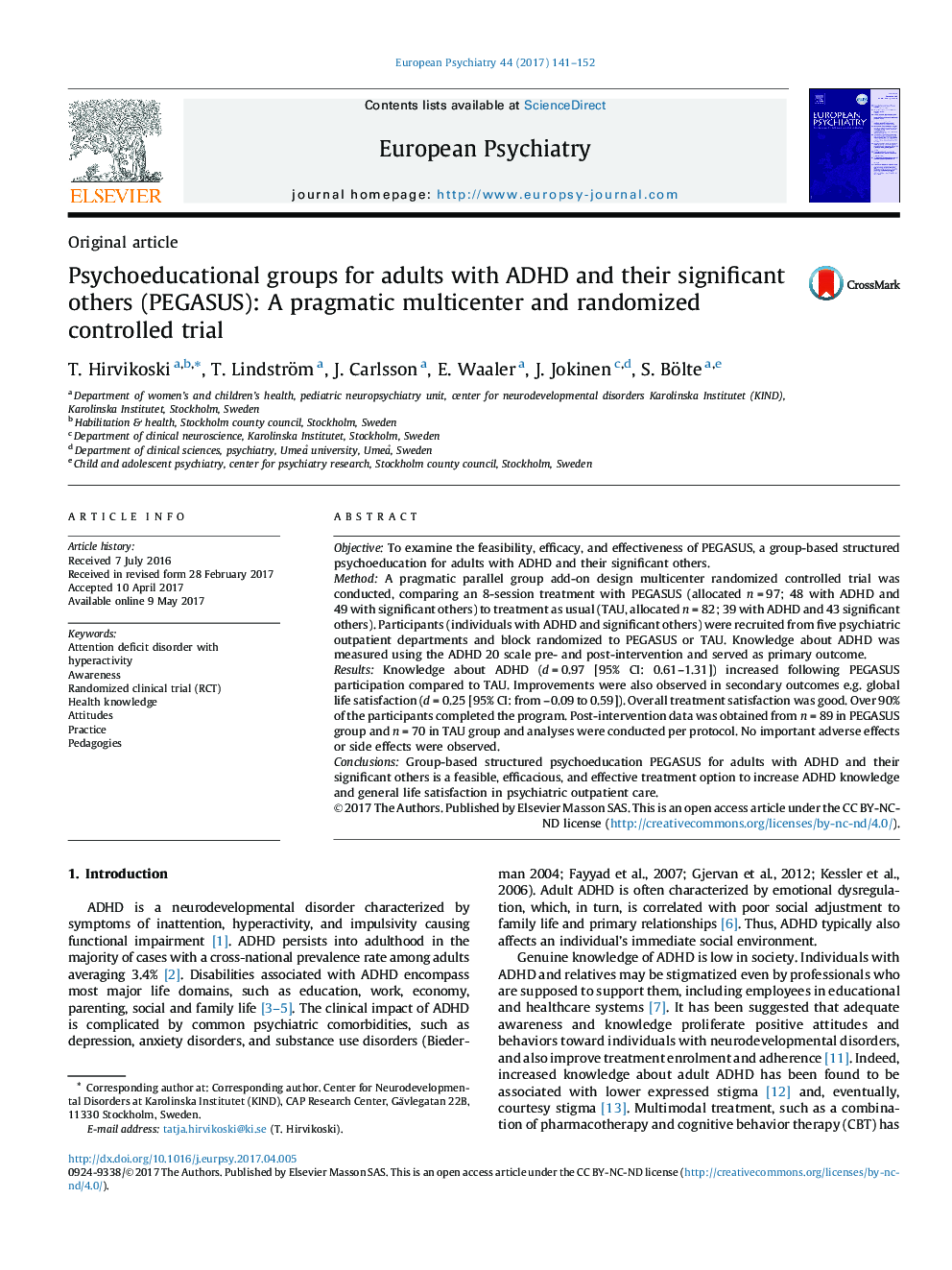| Article ID | Journal | Published Year | Pages | File Type |
|---|---|---|---|---|
| 5721401 | European Psychiatry | 2017 | 12 Pages |
ObjectiveTo examine the feasibility, efficacy, and effectiveness of PEGASUS, a group-based structured psychoeducation for adults with ADHD and their significant others.MethodA pragmatic parallel group add-on design multicenter randomized controlled trial was conducted, comparing an 8-session treatment with PEGASUS (allocated n = 97; 48 with ADHD and 49 with significant others) to treatment as usual (TAU, allocated n = 82; 39 with ADHD and 43 significant others). Participants (individuals with ADHD and significant others) were recruited from five psychiatric outpatient departments and block randomized to PEGASUS or TAU. Knowledge about ADHD was measured using the ADHD 20 scale pre- and post-intervention and served as primary outcome.ResultsKnowledge about ADHD (d = 0.97 [95% CI: 0.61-1.31]) increased following PEGASUS participation compared to TAU. Improvements were also observed in secondary outcomes e.g. global life satisfaction (d = 0.25 [95% CI: from -0.09 to 0.59]). Overall treatment satisfaction was good. Over 90% of the participants completed the program. Post-intervention data was obtained from n = 89 in PEGASUS group and n = 70 in TAU group and analyses were conducted per protocol. No important adverse effects or side effects were observed.ConclusionsGroup-based structured psychoeducation PEGASUS for adults with ADHD and their significant others is a feasible, efficacious, and effective treatment option to increase ADHD knowledge and general life satisfaction in psychiatric outpatient care.
